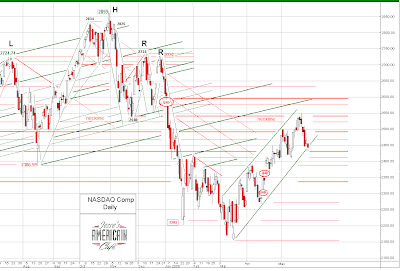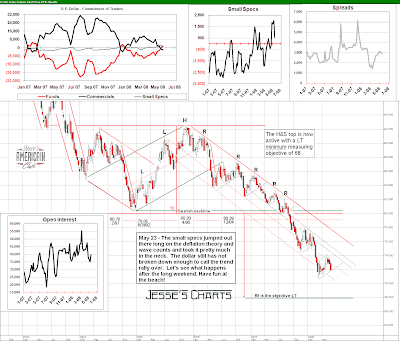No wonder UBS Selling Shares at 31% Discount to Market
UBS Falls After Bank Says More Losses From Mortgages Possible
By Elena Logutenkova
May 26 (Bloomberg) -- UBS AG, the European bank hardest hit by the U.S. subprime contagion, fell as much as 3.7 percent in Swiss trading after saying it may face more losses from mortgage securities.
UBS declined 94 centimes, or 3.1 percent, to 29 Swiss francs by 11:28 a.m. in Zurich, the biggest slump among the 59 companies on the Bloomberg Europe Banks and Financial Services Index. UBS has dropped 42 percent this year, cutting its market value to 63.3 billion francs ($61.7 billion).
The bank, in the prospectus for its $15.6 billion rights offer published after markets closed on May 23, said its losses on non-U.S. residential and commercial real-estate securities last year and in the first quarter of 2008 ``could increase in the future.'' UBS is also evaluating whether to limit or discontinue one or more of its U.S. reference-linked note programs, which ``could result in a charge to income,'' it said.
``UBS will have to fight against negative news flow for at least several more quarters,'' said Rolf Biland, who helps manage about $3.1 billion, including UBS shares, as chief investment officer at VZ Vermoegenszentrum in Zurich. ``The U.K. housing market is almost as overheated as in the U.S., and could lead to losses for banks.''
UBS is seeking to replenish capital after about $38 billion in writedowns related to the U.S. subprime crisis. The bank still has more than $45 billion in U.S. mortgage-related assets, $8.6 billion in leveraged finance commitments and $10.4 billion in U.S. student loans on its books.
The company hasn't said how much it holds in non-U.S. mortgage securities. UBS's net exposure to reference-linked notes was $8.9 billion at the end of March. The bank had created 10 such programs, which sold bonds referenced to a pool of asset-backed securities held by the bank, with a face value of $16.9 billion.
To contact the reporters on this story: Elena Logutenkova in Zurich at elogutenkova@bloomberg.net;







































